When it comes to cameras, there are two main types: digital SLRs and mirrorless cameras. Digital SLRs have been around for a long time and are very popular among photographers. However, mirrorless cameras are starting to gain in popularity because they offer many of the same features as digital SLRs but are smaller and lighter. So how long do mirrorless cameras last? In this article, we will answer that question and provide you with some helpful tips on how to prolong the life of your camera.
Do Mirrorless Cameras Have A Shutter Life?
One of the most common questions we get asked is how long do mirrorless cameras last? And specifically, do they have a shutter life? To answer that question, we need to first understand what a shutter is and how it works. A shutter is a piece of equipment in your camera that controls the amount of time that light hits the image sensor. When you take a picture, the shutter opens and allows light to pass through to the image sensor. The longer the shutter is open, the more light hits the sensor and the brighter your image will be. Conversely, if you want to take a picture with a shorter exposure time, you will need to use a faster shutter speed so that less light hits the sensor.[1]

Why Do Mirrorless Cameras Have Mechanical Shutters?
Most digital cameras have a shutter mechanism that’s entirely electronic. But many mirrorless cameras have a physical shutter, too. Why?
It comes down to two main reasons: image quality and durability. Electronic shutters are generally quieter and can shoot at faster speeds than their mechanical counterparts. But they can also introduce something called the rolling shutter effect, which can cause distortion in fast-moving subjects or when panning the camera.
Physical shutters, on the other hand, don’t have this issue since they expose the entire sensor to light at once. That said, they’re usually noisier and not as fast as electronic shutters.
So, if you’re someone who likes to shoot fast-moving subjects or do a lot of panning, a mirrorless camera with a physical shutter is a good option to consider. Otherwise, an electronic shutter will probably suit your needs just fine.[1]
Do Mirrorless Cameras Last Longer Than DSLR Cameras?
The answer to this question is a little complicated. On one hand, DSLR cameras have been around for much longer than mirrorless cameras, so there are more data points to work with when estimating the lifespan of a DSLR camera. On the other hand, mirrorless cameras don’t have any moving parts (other than the lens), which theoretically should make them more durable.
So, what’s the verdict? Unfortunately, there isn’t a clear-cut answer. However, we can look at some factors that might influence how long each type of camera lasts.[1]
How To Make Your Mirrorless Camera Last Longer
Use The Electronic Shutter Where Possible

There are a few things to keep in mind when using the electronic shutter, though. First, it can cause rolling shutter distortion, so it’s not ideal for fast-moving subjects. Second, it can be noisy, so if you’re shooting in a quiet environment (like a church or library), you might want to stick with the mechanical shutter.[1]
Use A Camera Strap
This is one of the simplest tips on the list, but it’s also one of the most effective. A camera strap will help to distribute the weight of your camera and lens(es) more evenly, which will in turn help to reduce wear and tear on your camera body. In addition, a good camera strap will also provide some shock absorption in the event that you drop your camera.
There are a variety of different types of camera straps available on the market, so be sure to do your research and find one that’s comfortable for you to use. And if you’re really serious about protecting your investment, consider investing in a second (or even third) backup strap.[1]
Keep It Away From The Elements
One of the best ways to prolong the life of your mirrorless camera is to keep it away from the elements. That means keeping it out of the rain, snow, and direct sunlight. If you can, try to keep it in a case when you’re not using it. This will protect it from scratches, bumps, and dust.
And finally, make sure you keep your lenses clean. Dust and dirt can damage your lens and affect the quality of your photos. So take the time to clean your lenses regularly.[1]
Don’t Change Lenses In Dusty Environments
One of the most common causes of dust getting into your camera is changing lenses in a dusty environment. When you take off a lens, the mount area is exposed and vulnerable to dust and other particles getting inside. To avoid this, always change lenses in a clean environment or use a lens hood to keep the mount area covered when changing lenses.
Another way to reduce the amount of dust that gets into your camera is to avoid using zoom lenses. Zoom lenses have more moving parts than prime lenses, which makes them more likely to attract dust. If you do use a zoom lens, make sure to clean it regularly.[1]
Store It In A Camera Bag

When you’re not using your mirrorless camera, it’s best to store it in a camera bag. This will help protect your camera from the elements and keep it clean. If you don’t have a camera bag, you can use any bag that has space for your camera and lens. Just make sure the bag is big enough so that your camera doesn’t get jostled around too much.[1]
What Makes Mirrorless Cameras Better than DSLRs
When it comes to choosing between a DSLR and a mirrorless camera, there are several factors that you need to consider. But if we’re talking about longevity, then mirrorless cameras have the upper hand.
Here’s why:
- Mirrorless cameras don’t have mechanical parts that can break or wear down over time. This means that they should theoretically last longer than DSLRs.
- Mirrorless cameras tend to be lighter and more compact than DSLRs, which makes them less likely to be damaged in an accident.
- The lack of a mirror means that there’s one less thing that can go wrong inside the camera body.[2]
Electronic Shutter Vs Mechanical Shutter
When it comes to how long your mirrorless camera will last, one of the key factors is the type of shutter your camera has. Electronic shutters are much more vulnerable to wear and tear than mechanical shutters, and as a result, they don’t tend to last as long.
If you’re looking for a mirrorless camera that will last you a long time, it’s best to choose one with a mechanical shutter. However, if you don’t mind spending a bit more money on repairs and replacements down the line, an electronic shutter mirrorless camera will still give you great results.[2]
Other Factors That Determine Your Cameras Lastingness
Aside from the type of camera, there are a few other factors that play into how long your mirrorless camera will last. One is how well you take care of it. If you take good care of your gear and keep it clean, it will last longer. Just like with anything else, if you abuse it and don’t take care of it, it won’t last as long.

Another factor is how often you use it. If you only pull your camera out once in a while for special occasions, it will last longer than if you use it every day for work or pleasure. The more wear and tear something has, the shorter its lifespan will be.
Is It Cheaper to Get a New Mirrorless Camera Vs Replacing Worn-Out Parts?
The lifespan of a mirrorless camera is determined by how well you take care of it and how often you use it. If you don’t baby your gear and you use it frequently, then you can expect to replace parts or the entire camera sooner than someone who is more gentle with their device and only uses it on occasion.
In general, though, a mirrorless camera should last anywhere from three to five years before needing significant repairs or replacement. Of course, this number will go up if you buy a higher-end model that’s built with better materials and designed to withstand more wear and tear.
If you’re trying to determine whether it’s cheaper to get a new mirrorless camera or replace worn-out parts, then it really depends on the situation. In some cases, it may be less expensive to simply buy a new camera, while in others, it might make more sense to invest in replacement parts.
To get an idea of what kind of costs you’re looking at, let’s say that a new mirrorless camera body costs $800 and a lens kit runs for $500. If you need to replace the shutter after three years of use, then that’s going to set you back an additional $200.
In this scenario, it would actually be cheaper to just buy a new camera than replace the shutter on your old one. However, if you only needed to replace the battery grip after five years of use, then it would make more sense to buy the replacement part than to buy an entirely new camera.
Ultimately, it comes down to a combination of factors, including the cost of the replacement part, the difficulty of the repair, and your personal preferences.
If you’re not sure what to do, then it’s always a good idea to consult with a professional photographer or camera technician. They’ll be able to assess your situation and give you their expert opinion on whether it’s cheaper to get a new mirrorless camera or replace worn-out parts.[3]
What are the Critical Parts of a Camera That Will Render It Useless If Broken?

There are four primary things that can break on a camera and render it unusable: the sensor, the lens mount, the shutter, and the autofocus system. Let’s briefly touch on each one.
The sensor is what captures the image and stores it as data. It is made up of millions of tiny light-sensitive cells called photosites. When light hits these photosites, they produce an electrical charge that gets converted into digital data that your camera can read. If even one photosite is damaged, it will show up as a dead pixel in your image. And if there are too many dead pixels, your image will be unusable.
The lens mount is where you attach your lenses to the camera body. The mount is what allows the lenses to communicate with the camera body and send information like aperture, focal length, and focus distance. If the lens mount is damaged, you will not be able to use any lenses with your camera.
The shutter is what controls how long light hits the sensor. It opens when you press the shutter button and then closes a fraction of a second later. If the shutter is damaged, it might not open at all or it might stay open too long and overexpose your image.
The autofocus system is what helps you focus on your subject. It uses tiny motors to move the lens elements around until they are in the right position to produce a sharp image. If the autofocus system is damaged, you will not be able to focus your camera properly.[3]
How to Prevent Damaging Your Camera
It’s important to take care of your camera so that it lasts as long as possible. Here are some tips on how to prevent damage to your mirrorless camera:
- Store your camera in a safe place when you’re not using it. A padded case or bag will help protect it from bumps and scratches.
- Be careful when handling your camera. Avoid dropping it or subjecting it to severe shocks.
- Avoid exposing your camera to extremes of temperature or humidity. Bring it inside if you’re shooting in cold weather, and keep it out of direct sunlight.

- Keep your lens clean, and be careful not to scratch the lens surface when cleaning it. Use a blower brush or compressed air to remove dust, and a lens cloth to wipe away fingerprints and smudges.
- If you’re not using your camera for an extended period of time, store it in a cool, dry place. You might consider storing it in a camera bag filled with silica gel packets to help absorb moisture.[2]
FAQ
Do mirrorless cameras last longer than DSLR?
The answer to this question is a bit complicated. On one hand, DSLRs have been around for much longer and therefore have had more time to perfect their technology. On the other hand, mirrorless cameras are a newer technology and therefore may be seen as more reliable in the long run.
Does mirrorless camera quality degrade over time?
The answer to this question is a bit more complicated than a simple yes or no. The quality of your mirrorless camera will generally not degrade over time, but the performance may slow down as the camera ages.
There are a few factors that can affect how well your mirrorless camera performs as it ages. One is simply the number of shutter actuations, or how many times you’ve pressed the shutter button. Every time you press the shutter, it’s like taking a little bit of life out of your camera.
Another factor is whether or not you use your camera regularly. If you don’t use your mirrorless camera often, the battery may lose its charge and need to be replaced more frequently. In addition, if you don’t keep your camera’s firmware updated, you may miss out on important performance improvements.
Finally, it’s worth considering how you take care of your mirrorless camera. If you’re constantly exposing it to the elements, like sand or salt water, that will undoubtedly shorten its lifespan. Conversely, if you take good care of your camera and store it properly when not in use, it will last much longer.
How much shutter count is too much mirrorless?
This is a difficult question to answer, as it really depends on the camera model and make. Some cameras can withstand heavy use with little degradation, while others might start to show signs of wear and tear after just a few thousand shutter clicks. However, as a general rule of thumb, most experts agree that around 30,000 shutter actuations is usually when you start to see noticeable changes in image quality. Of course, this number will differ depending on your individual shooting habits – if you only take pictures on special occasions, your camera will likely last much longer than someone who uses their mirrorless camera for professional photography gigs every weekend.
What happens when you reach shutter life?
When you reach the end of your shutter life, there are a few things that can happen. Your camera may start to produce more noise when taking pictures, or the image quality may decrease. In some cases, the camera may stop working entirely.
Do mirrorless cameras have a shutter limit?
This is a common question, and the answer isn’t as simple as you might think. While most DSLR cameras have a shutter limit of around 100,000 shots, mirrorless cameras don’t necessarily have the same limitation. The reason for this is that mirrorless cameras don’t have a physical shutter like DSLRs do. Instead, they use an electronic shutter which doesn’t wear out in the same way.
Useful Video: BEST MIRRORLESS CAMERAS: 7 Mirrorless Cameras (2022 Buying Guide)
Conclusion
So, how long do mirrorless cameras last? It really depends on a number of factors, from how well you take care of your camera to the type of photography you’re doing. With proper care and maintenance, most mirrorless cameras should last for several years. However, if you’re a heavy shooter or are constantly pushing your camera to its limits, you may start to see some wear and tear sooner than expected.
No matter what, it’s always a good idea to have a backup plan in place just in case something does happen to your camera. After all, it’s better to be safe than sorry! We hope this article has helped give you a better understanding of how long mirrorless cameras last and what you can do to extend their lifespan. Do you have any other tips or advice on the matter? Let us know in the comments below!
References:
- https://photoallstar.com/how-long-does-a-mirrorless-camera-last/#
- https://cameragurus.com/how-long-do-mirrorless-cameras-last/
- https://ultimatelytech.com/how-long-mirrorless-camera-last/

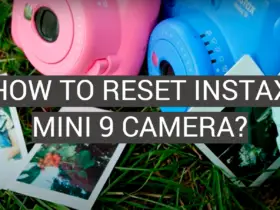
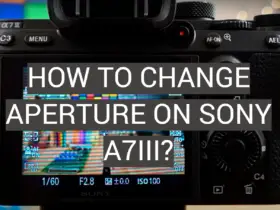
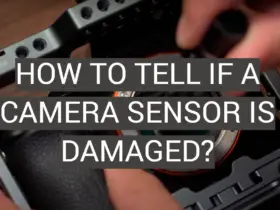


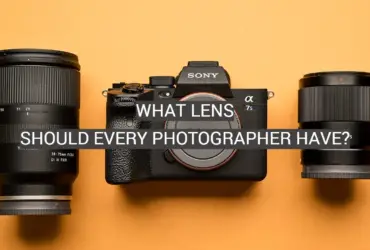
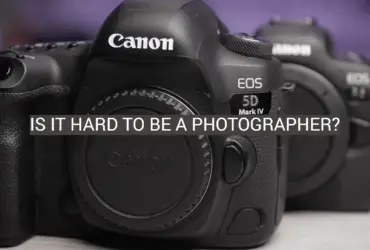
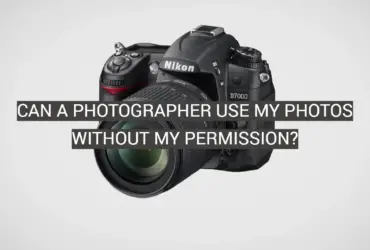



Leave a Reply